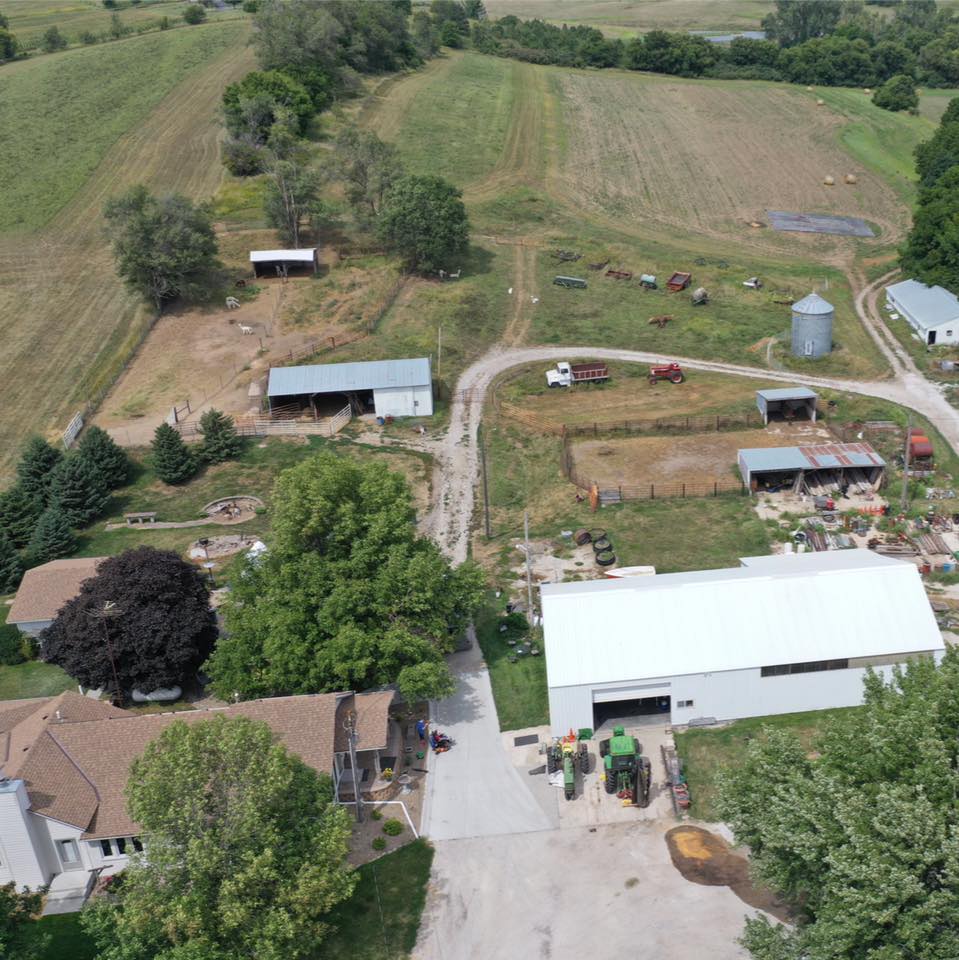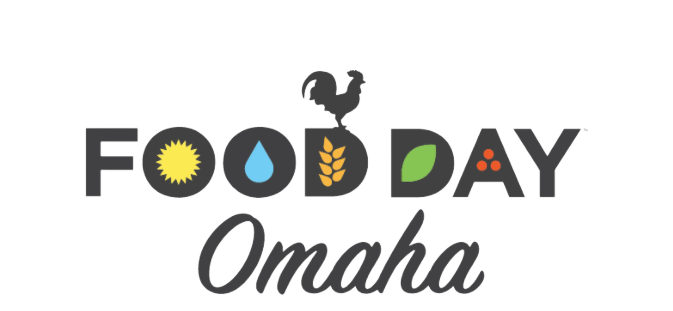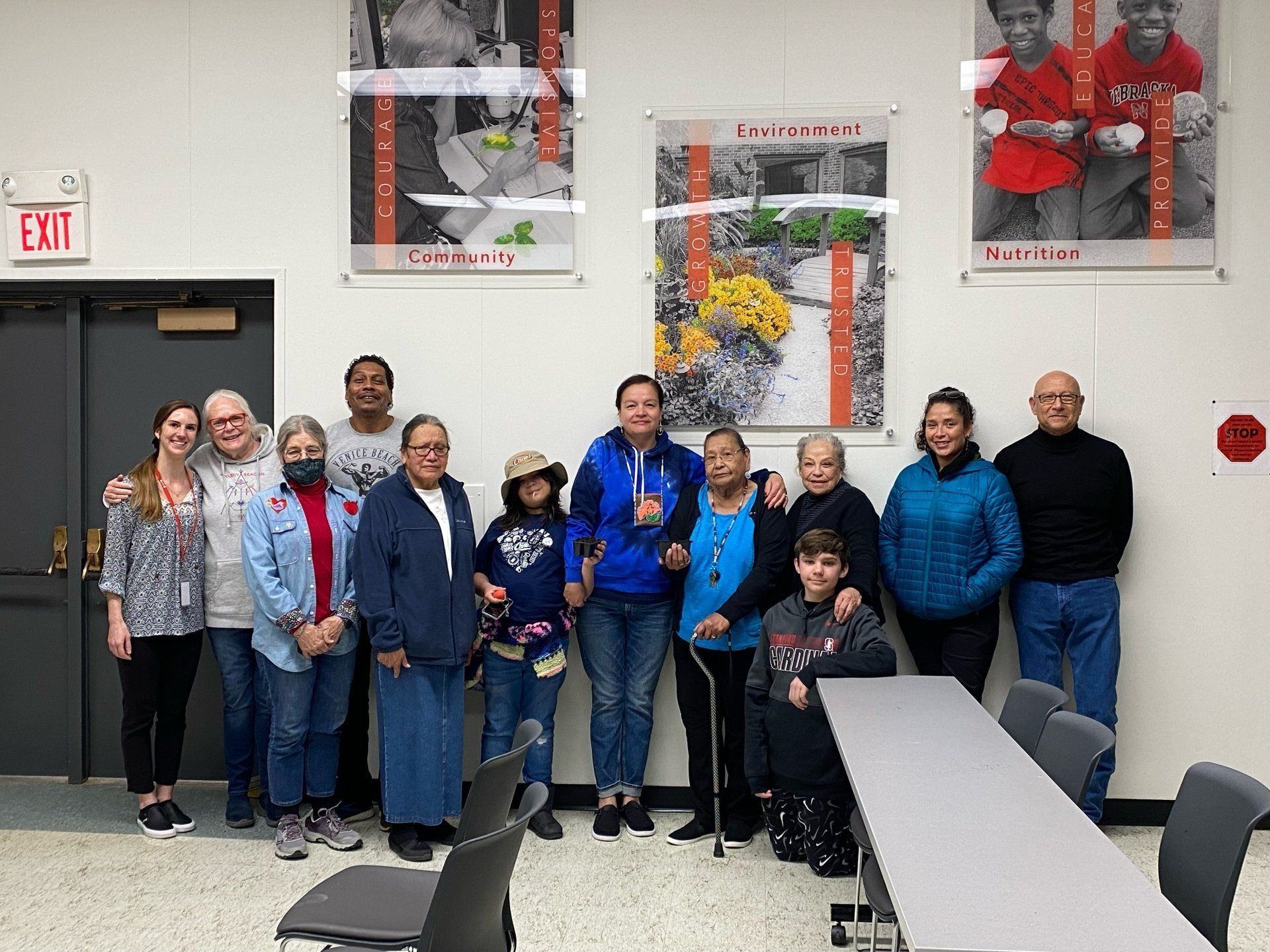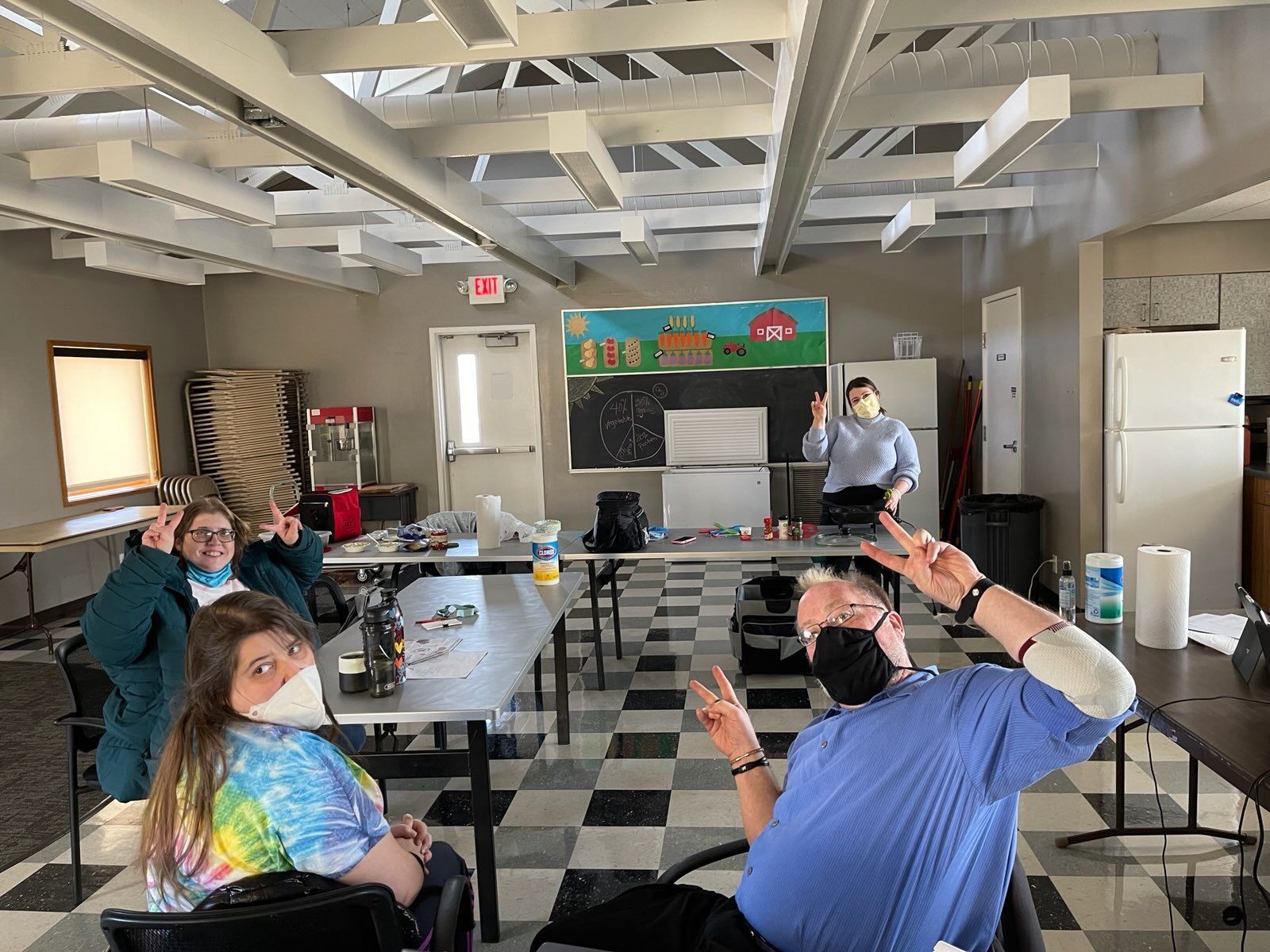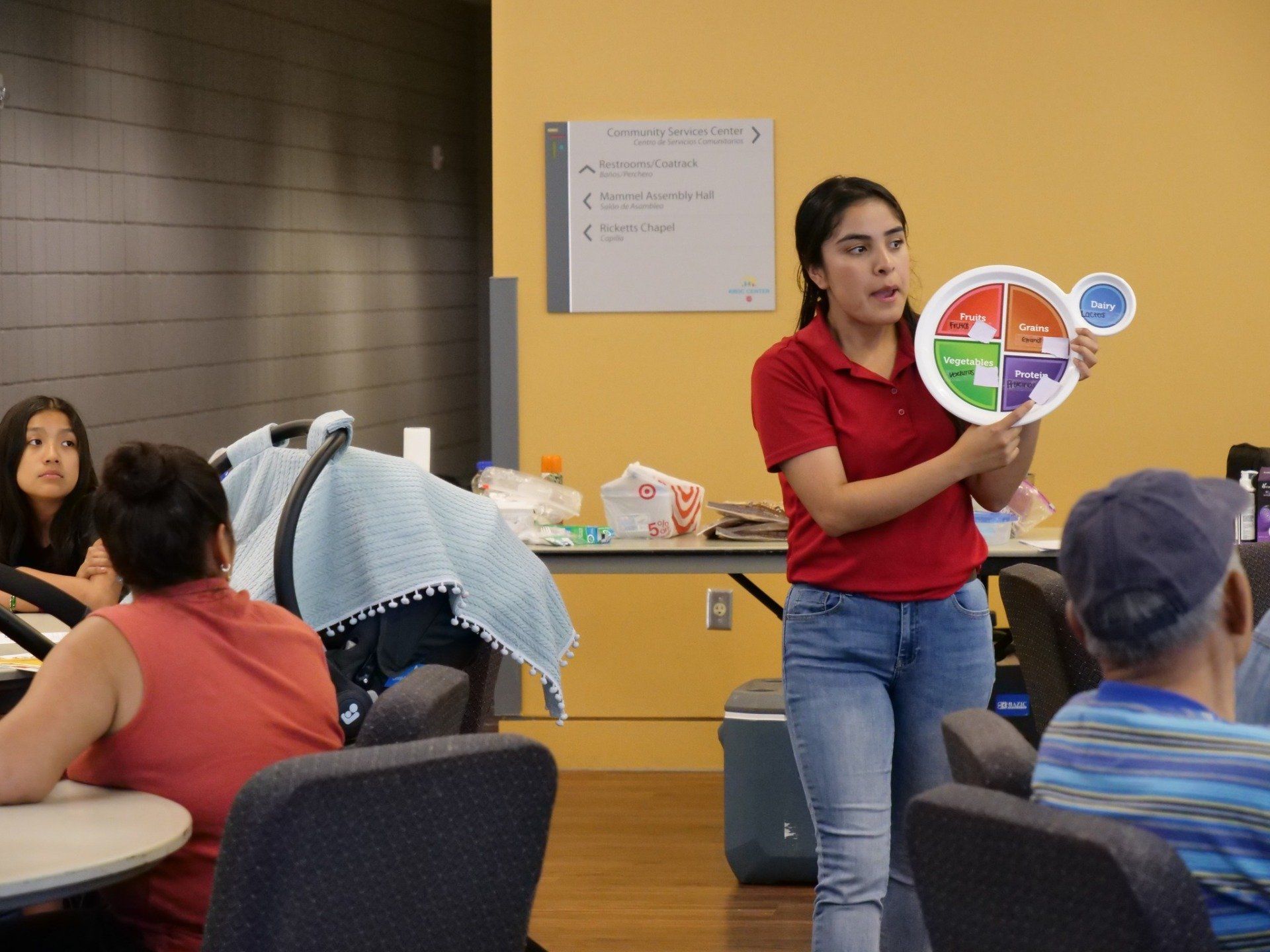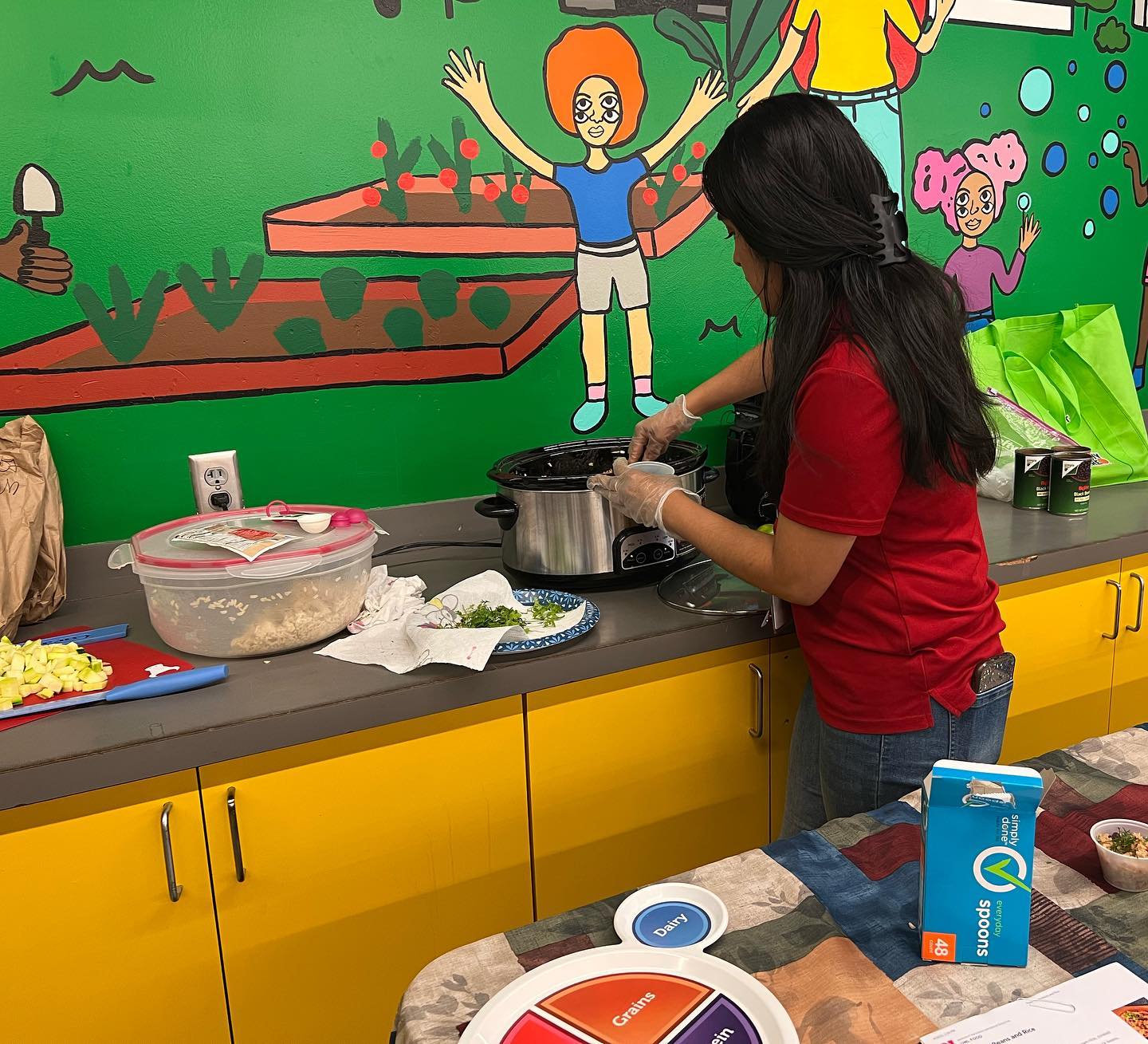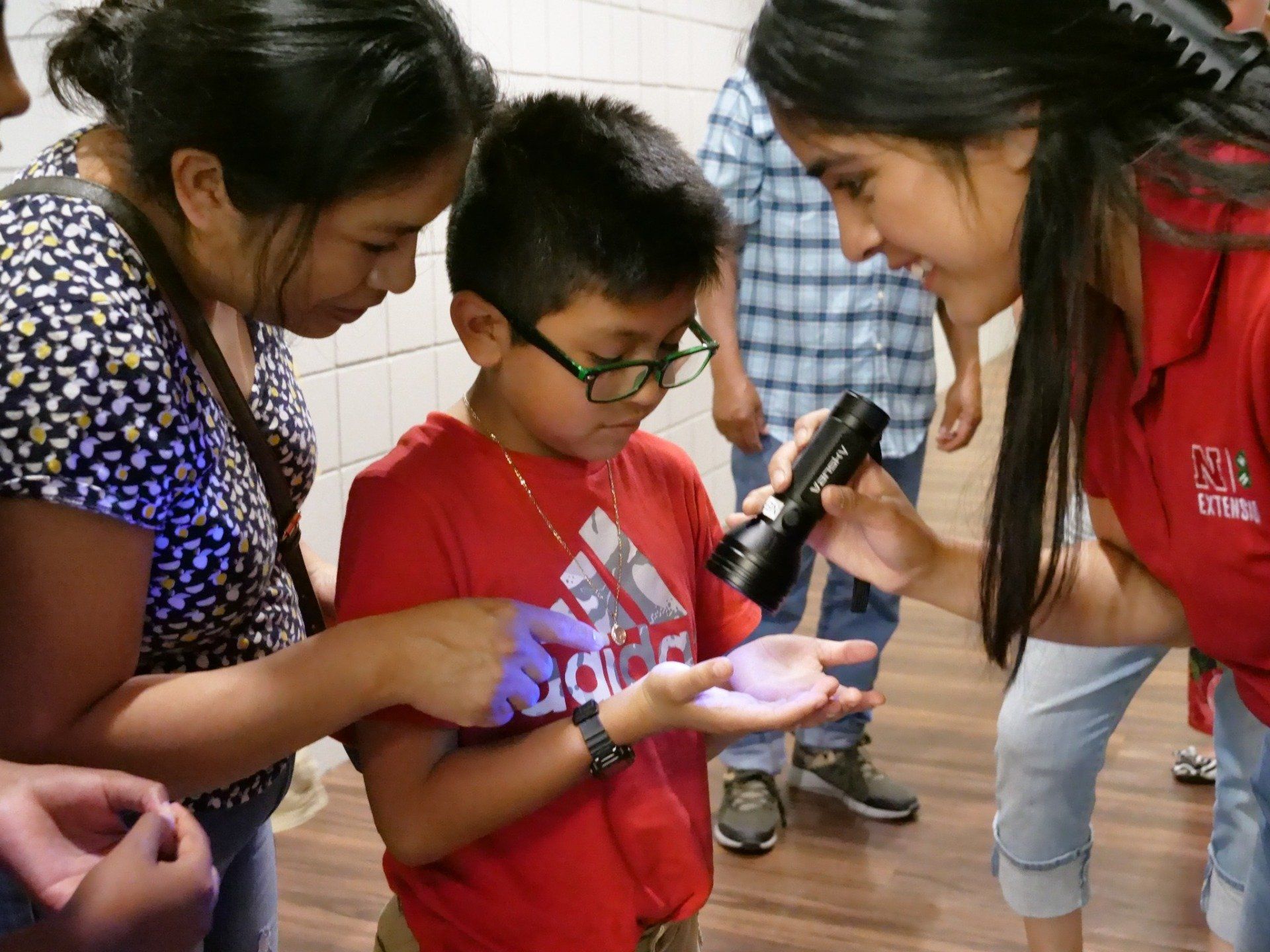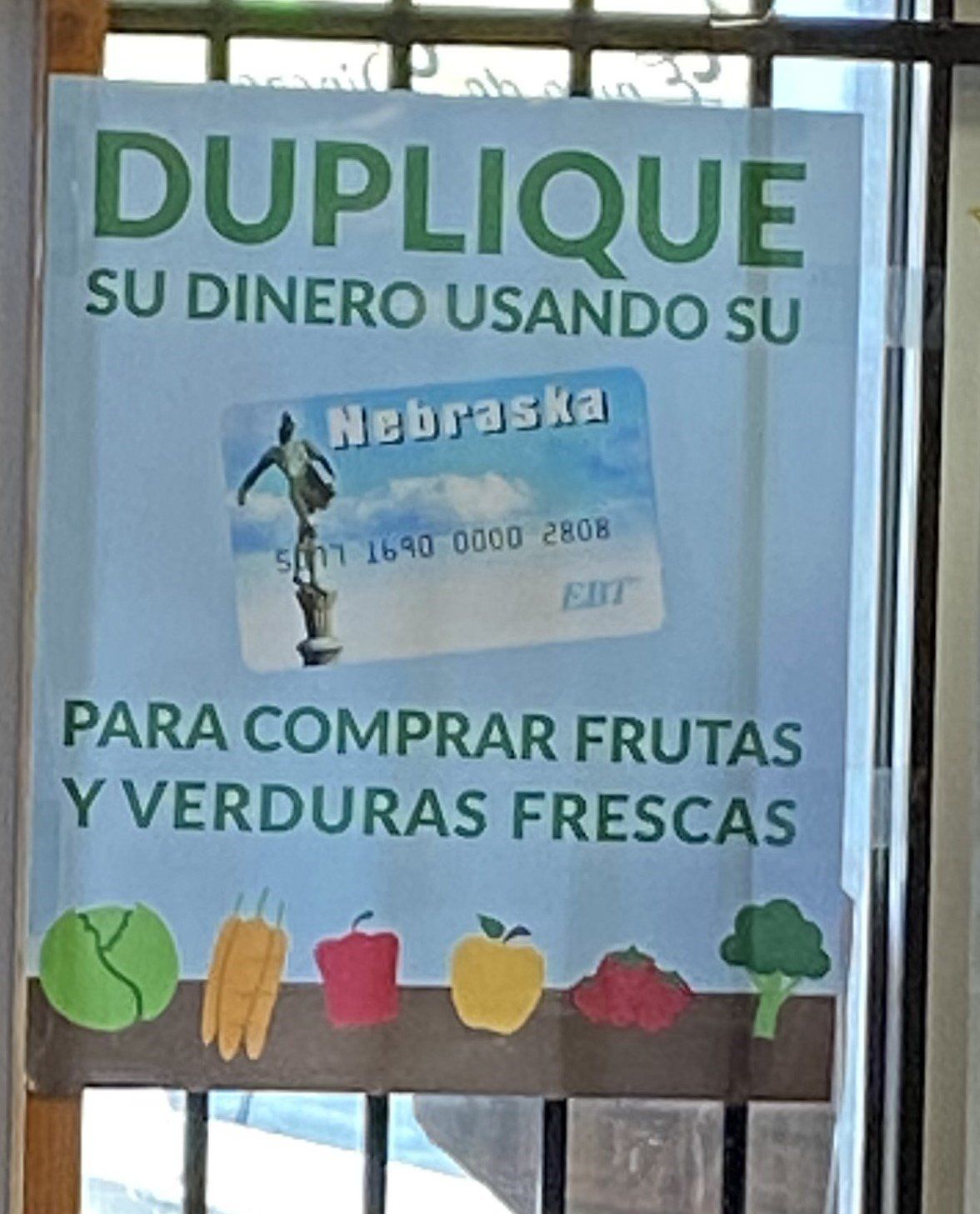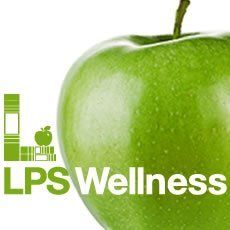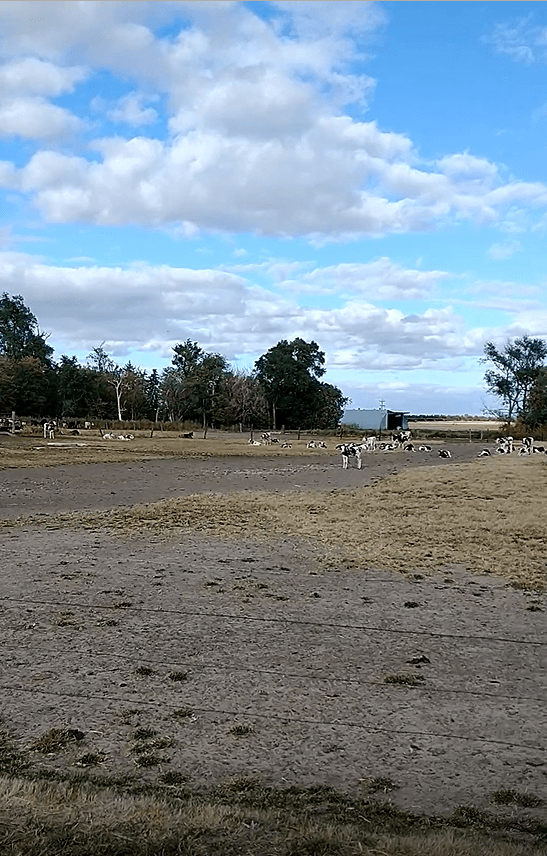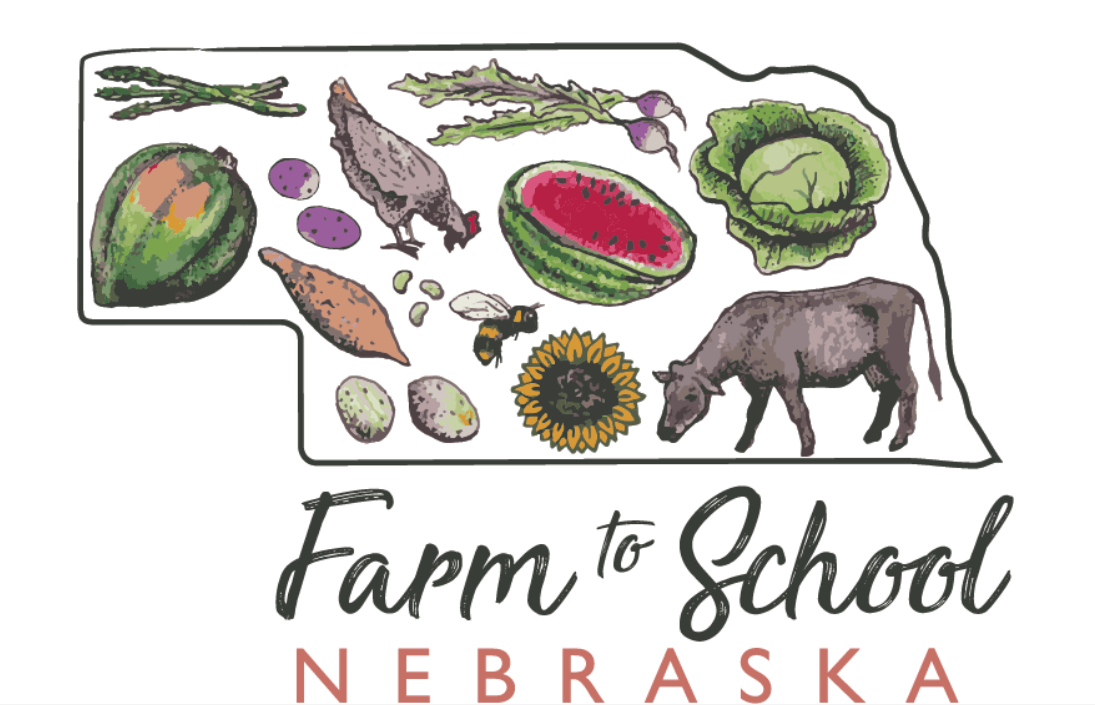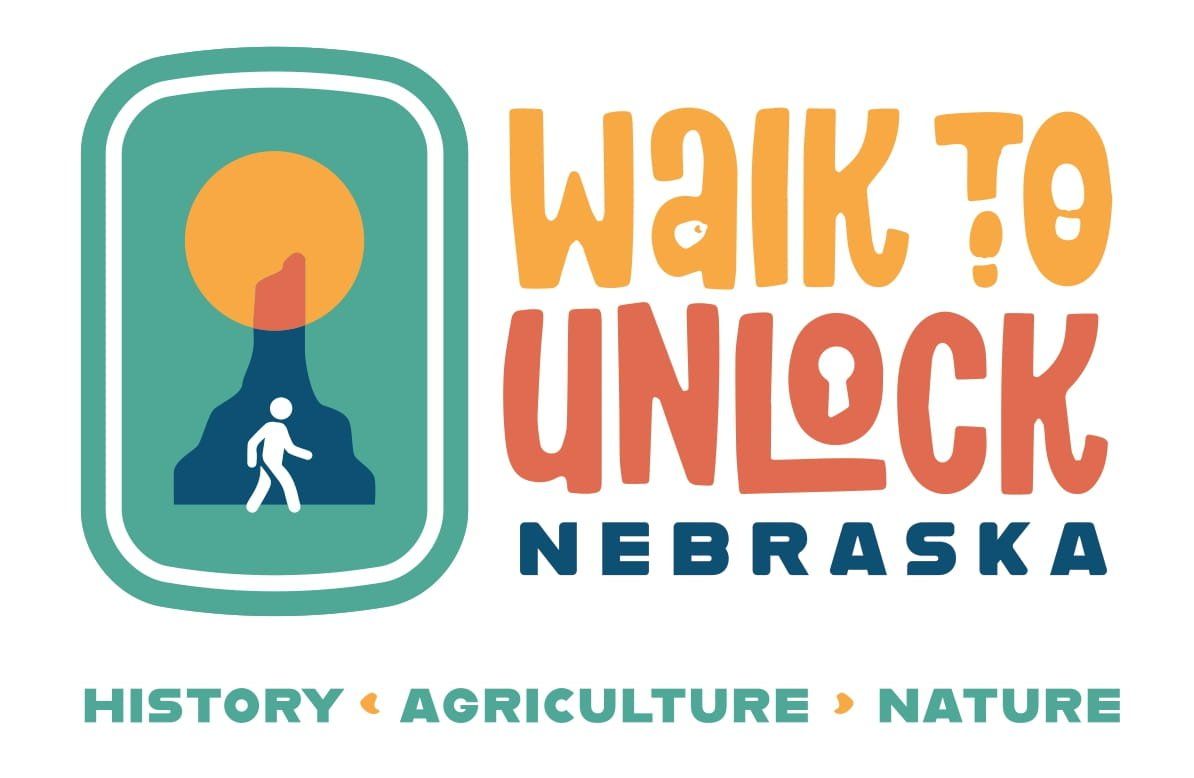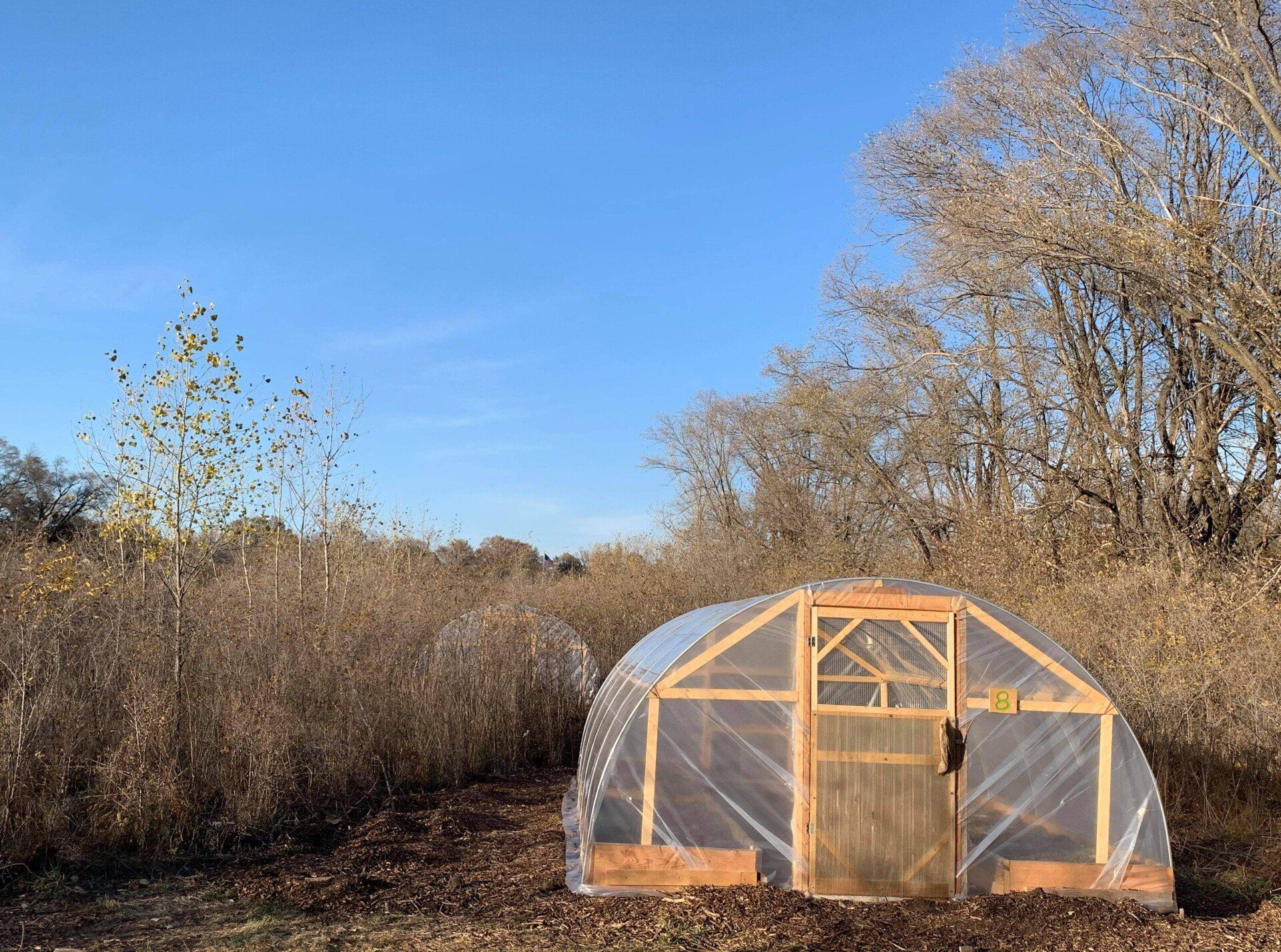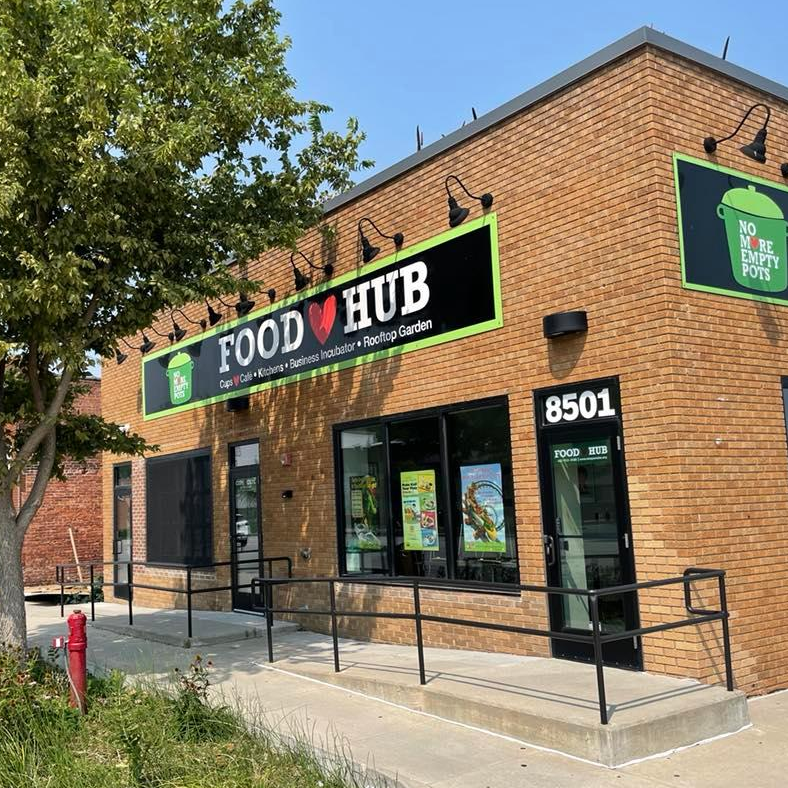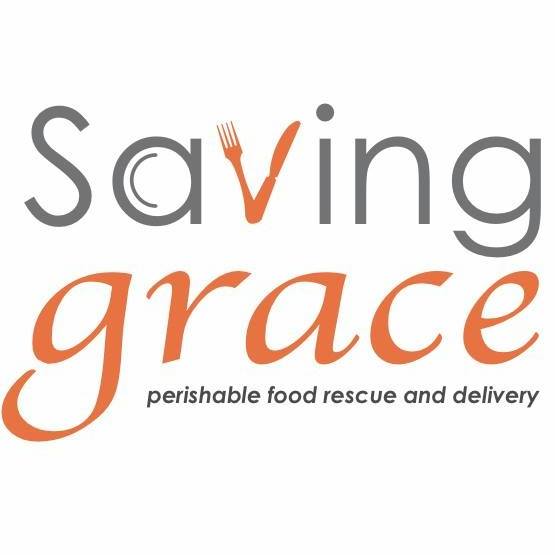Nebraska Extension Nutrition Education Program provides resources that help community members access local, healthy food
Nebraska Extension Nutrition Education Program provides resources that help community members access local, healthy food

Photos courtesy of Audra Losey
A long-standing program in the state, Nebraska Extension's Nutrition Education Program began serving the Omaha community with Expanded Food and Nutrition Education Program (EFNEP) in 1969 and the Supplemental Nutrition Assistance Program – Education Division (SNAP-Ed) in 1995.
The Nebraska Extension Nutrition Education Program (NEP) helps families on a limited budget make healthier food choices and choose physically active lifestyles by acquiring the knowledge, skills, attitudes and behavior changes necessary to improve their health. NEP is free to all participants who meet income guidelines.
Audra Losey, extension educator for SNAP-Ed and EFNEP, says the NEP team leads the coordination of the Double Up Food Bucks (DUFB) program in Douglas County. DUFB matches SNAP customers' fruit and vegetable purchases dollar for dollar when they use their Electronic Benefits Transfer (EBT) card at participating grocery stores, farmers markets and corner stores.
"DUFB increases food security by providing a buy one get one incentive for fresh fruits and vegetables when SNAP recipients shop at our partner sites," Losey says. "We’ve worked with Las Nenas Zamora Market since 2019 and Omaha Farmers Market since 2018 to put more money into the pockets of SNAP customers for fresh produce. NEP provides nutrition education in partnership with the sites and other community partners to ensure that customers are comfortable finding, choosing and using produce items."
Food and cooking demonstrations
In addition to the DUFB program, Losey says the team engages the community by offering instruction on how to cook healthy, nutritious meals. NEP staff member Martha Hernandez often gives food demonstrations at decision points such as food pantries, farmer’s markets and grocery stores.
Losey says team members customize demonstrations to the audiences they serve, choosing recipes that are accessible to them.
"Low-cost, nutritious and easy-to-make recipes are important for participants to have access to the ingredients and tools to recreate the recipes at home," she says. "Martha incorporates shelf-stable foods and fresh produce from community gardens to demonstrate ways to add affordable fruits and vegetables to any meal or snack. At pantries, community members can taste a recipe from the food demo and walk out with the ingredients that day. Martha teaches about recipe substitutions, how to cook from what’s on-hand and simple ways to add in nutritious ingredients."
Nutrition education for caregivers
Many people are beginners in the kitchen and require instruction on how to better feed themselves or their families. To meet those needs, Losey says NEP team member Lisa Larkin teaches nutrition and cooking skills to pregnant mothers, parents and caregivers in-person and through online classes in collaboration with several community organizations.
"Lisa builds trust with her class participants facing difficult circumstances," Losey says. "Whether she’s teaching at transitional housing, a homeless shelter or a rehabilitation facility, she knows the importance of making connections before education can happen."
By building rapport with her audience, Losey says Larkin teaches people food preparation and cooking skills to help them improve their well-being.
"Attendees graduate from her classes with confidence that they can meal plan, shop and safely cook healthy meals," Losey says. "She truly provides an inviting learning atmosphere where attendees build their practical life skills needed for self-sufficiency."
Promotion of Native recipes
In partnership with the Nebraska Extension Tribal Office, the Nebraska Extension Nutrition Education Program has a position dedicated to Indigenous Food Sovereignty. Losey says staff member Brooke Andrew collaborates with Indigenous people living in urban areas to promote gardening and learn about the health benefits of growing food at home. She teaches nutrition classes in person and online.
Since Andrews began her position in fall 2021, Losey says she has been busy testing Indigenous recipes using Native foods that she incorporates into her programs. Andrews also teaches a group of elders called the Tired Moccasins at a local community center. Many in the group come every day to sew, complete puzzles, make crafts, eat lunch and garden together.
Along with teaching the Tired Moccasins group, Andrews visits the community center every Thursday to teach a nutrition class. Losey says the lessons focus on older adult nutrition and physical activity.
Despite having access to the center's on-site garden, the elders do not always know how to use the produce. Losey says NEP classes provide new recipe ideas and skills that allow attendees to use the garden produce in their cooking.
"The elders love trying new recipes and often share them with their families," Losey says. "One participant said, 'I give your recipes to my daughter, and she makes them for her kids. They love the smoothie and drink recipes. Can I have more?' Another participant said, 'I made your salad recipe three times last week for my husband and my mom!' Each week, more participants show up to class. Some even arrange their doctor visits around the time we meet so it doesn't interfere."
Special needs instruction
NEP staff member Alyssa Wessling spends her time teaching adults with disabilities to enhance their independence and make healthy choices.
Since 2020, NEP has partnered with Ollie Webb, a community organization that provides assistance, advice, advocacy and services to families and people with developmental or intellectual disabilities. Losey says Ollie Webb has multiple sites that provide structured care throughout the day, and the organization's mission is to fight for equal opportunities for people with intellectual disabilities.
Losey says the NEP team has offered classes that cover nutrition topics such as healthy eating, portion sizes, sweetened drinks, nutrition facts labels and breakfast choices. Wessling also incorporates physical activity and food safety into her lessons.
"Students are presented with opportunities to participate in making meals and are given experiences in the kitchen," Losey says. "Alyssa understands that each participant may need different supports. She adapts class activities, recipes and regularly thinks of creative ways to meet participants where they are most comfortable. After attending Alyssa’s classes, one man stated, 'I do feel more comfortable using the stove now,' and another woman stated, 'I'm excited to have recipes that don't need knives or the stove. You know? That just feels safer.'"
Early childhood education
For many people, the unfamiliar is intimidating. Many Americans experiment with different recipes before they feel comfortable with incorporating new foods into their diets. Losey says young children are often hesitant to try healthy, nutritious foods, but the same can be true for older children and adults.
To expose people to healthy eating, the NEP provides opportunities for program attendees to experience a variety of foods through hands-on cooking, taste tests, nutrition education and gardening. Through direct education classes and other efforts, the NEP seeks to improve policies, systems and the environment of the community, encouraging people to pursue healthier lifestyles by consuming local, nutritious food.
NEP staff members Toni Wilson and Audra Losey support healthy early childhood environments by working directly with child care programs. Losey says they coach directors and teachers as they share best practices relating to nutrition, physical activity, breastfeeding support, outdoor play and screen time. Together, they enhance menus, encourage positive meal time interactions and build intentional lesson plans to ensure children have access to healthy foods and physical activity.
"Long term changes are supported through building level policy changes and ongoing staff training," Losey says. "Programs are also recognized for their health efforts in Nebraska’s quality rating improvement system for early childhood programs called Step Up to Quality. This process also encourages the long-term adoption of the healthy best practices for our youngest Nebraskans."
Visit the NEP website to learn more about Nebraska Extension's Nutrition Education program, connect with staff, find recipes or access resources.
